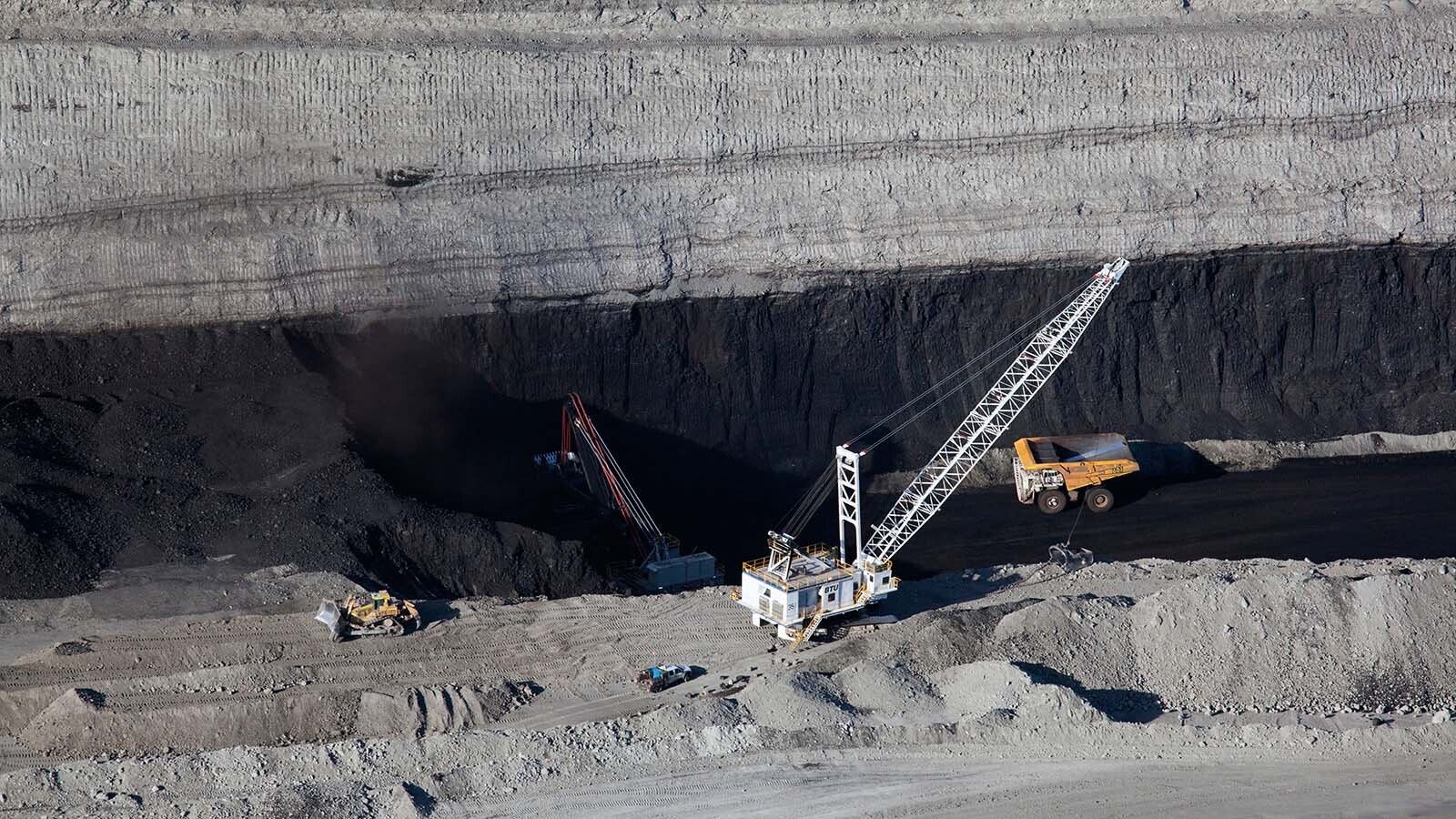Arch Natural Resources reported a record-breaking net income for 2022 of $1.3 billion Thursday, but much of that performance came out of its metallurgical coal operations in the Eastern U.S. and overseas.
While the company’s metallurgical segment did well over the year, its legacy thermal coal operations in Wyoming’s Powder River Basin struggled with rail transport issues.
Poor Rail Service
Arch owns the Black Thunder Mine near Wright and the Coal Creek Mine in Gillette, as well as the West Elk Mine in Western Colorado. The three mines represent the bulk of the company’s thermal coal production.
Metallurgical coal, also called coking coal, is used in heavy industry to produce, among other things, steel. Thermal coal is used primarily in electricity generation.
In the fourth quarter of 2022, the three mines sold 16.1 million tons of coal, compared to 18.8 million tons in the third quarter and 18.8 million tons in the fourth quarter of 2021.
According to Arch’s statements on quarterly earnings, the drop in sales is attributed to “further deterioration in already poor Western rail service.”
Burning Less
Burlington Northern Santa Fe (BNSF) and Union Pacific are the two companies that provide rail service to Wyoming miles.
Coal mining companies only get paid after the coal leaves a mine.
During a presentation last month before the Senate Minerals Committee, Travis Deti, executive director of the Wyoming Mining Association, estimated that Wyoming lost about $100 million in revenue in 2022 from about 50 million tons of coal that couldn’t get shipped from Wyoming’s mines because of limited rail transport.
In its fourth quarter 2022 earnings call this month, Peabody also reported rail service is impacting its ability to produce coal.
During Arch’s conference call Thursday, John Drexler, senior vice president and COO, said that demand for Wyoming coal was solid, but last year the company’s customers were doing an “awful lot of conservation” because of the poor rail service.
This meant they were burning less coal to produce electricity and drawing upon stockpiles at power plants.
Drexler said Arch isn’t hearing from those customers that they don’t want to receive the full allocation they’re contracted to receive, and Arch expects that in the coming year, these customers will be looking to rebuild their inventories.
“Generally, they would have been burning more coal, but they just didn’t have the inventory and they couldn’t get the volumes,” he said. “And so as a result, they are focused on rebuilding those inventories now.”
Extraordinarily Disappointing
Arch CEO and President Paul Lang said that Eastern railroad companies had the same issues, but were able to resolve them in four or five months.
“Frankly, the Western rail service has gotten worse through the fourth quarter,” Lang said. “It’s extraordinarily disappointing what they’re doing and their ability to bounce back.”
Lang didn’t discuss specifics as to what issues railroads are facing, but BNSF and Union Pacific have recently blamed labor shortages for rail issues.
Spokespersons for both railroads have said they’re making progress recruiting train crew, engineers, conductors and mechanics.
Lang said that Arch’s customers also have been impacted by the bottlenecks on rail transport.
“I think if they could get the rail service, I feel a little more optimistic this year about them taking what they contracted,” Lang said.
Peabody Energy in its earnings call this week also expressed difficulties with getting enough rail transport, but they attributed the problem to two cold snaps in December.
Still Open
Arch has announced plans to get out of thermal coal altogether and has fast-tracked reclamation efforts and work to close both its PRB mines.
Both mines are still operational, and there were no updates on the planned closures in Thursday’s earnings call.
Lang said that 75% of the reclamation work at its Coal Creek facility was complete in less than two years since it began. He also noted the company’s high safety record.
“These are a significant list of accomplishments,” Lang said.
Lang called the company’s commitment to environmental, social and governance (ESG) standards a key for the company’s success and part of its “social contract.”
ESG standards rate companies on various markers of progressive-friendly policies related to protecting the environment, diversity in the workplace and community relations. Any association with fossil fuel industries quickly gets a fund rated down, which has greatly impacted the availability of capital investing for companies involved in oil, gas and coal.
Most companies involved in fossil fuel development adopt ESG policies and try to get their ratings increased.
Asian Markets
Arch sold 2.1 million tons of coking coal in the fourth quarter of 2022, compared to 1.9 million tons in the same quarter last year. It was also an increase of 300,000 tons over the third quarter of 2022.
Lang said the company is looking to expand its customer base in Asian markets, as steel production moves away from other markets.
“The logic is fairly simple,” he said. “Both the U.S. and European blast furnaces are slowing down or for a variety of reasons, or starting to move away. And the real growth is on the raw steel and the hot rolled steel, [which] is in Asia.”





